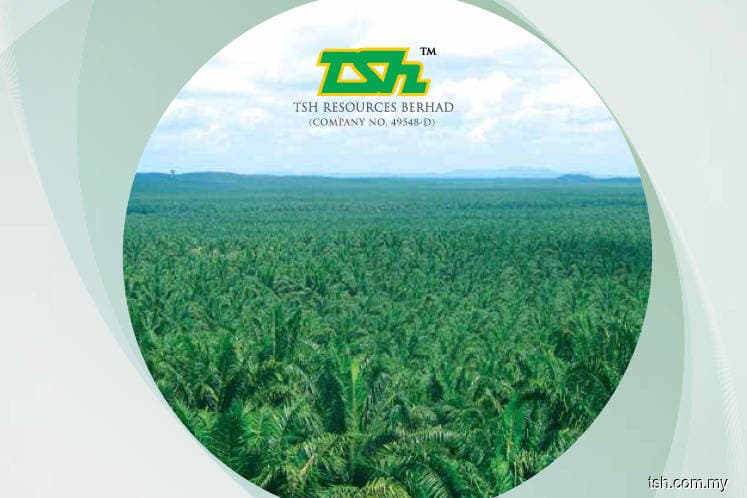
This article first appeared in The Edge Financial Daily on October 31, 2018
KUALA LUMPUR: Robust fresh fruit bunch (FFB) production growth is a potential earnings catalyst for TSH Resources Bhd moving forward, analysts say.
Earnings of the group, whose stock has been upgraded to “buy” by AmInvestment Bank, are expected to rebound on continued improvements in its FFB output in the second half of financial year 2018 (2HFY18).
“We have assumed TSH’s FFB production would improve by 6.9% in financial year 2019 forecast (FY19F), compared with 14.7% in FY18 estimate,” AmInvestment wrote in its Sept 9 note, as it raised its fair value on TSH to RM1.48 a share from RM1.35, based on a higher FY19F price-earnings (PE) of 22 times, from 20 times previously.
“We have raised our PE assumption for TSH as we think plantation stocks would be rerated if CPO (crude palm oil) prices recover in the second quarter of 2019. We like TSH for its young oil palm trees in Indonesia. Indonesia accounts for over half of TSH earnings and 85% of its FFB production,” it added.
The average age of TSH’s Indonesian oil palm trees is seven years; about 29.1% of the group’s oil palm trees there are between prime ages of nine and 15 years. Another 33% is between four and eight years old, it noted.
AllianceDBS Research has also kept a “buy” on TSH, with a target price of RM1.50 on expectations that its year-on-year (y-o-y) core earnings in 2HFY18 would improve from the lower CPO average selling price (ASP) base in 2HFY17.
“Rising levels of FFB production will continue to drive margin improvements, especially at its Indonesian operations, where a weaker rupiah [against the US dollar] also serves to bolster the ASP locally,” said AllianceDBS Research in an Aug 24 note; it described production as a key silver lining for the group.
TSH’s FFB output grew 23.6% y-o-y to 401,700 tonnes in 1HFY18, with CPO output rising 11.8% to 147,500 tonnes in the same period, according to AllianceDBS Research.
TSH remains “a key proxy to the potential recovery in CPO prices, given its firm pipeline of organic FFB volume growth driven by the expansion of its mature planted areas”, it added.
While the Sabah-based plantation player reported a smaller net profit of RM4.1 million in the second financial quarter ended June 30, 2018 compared with RM25.3 million a year ago — mainly due to a lower CPO price — the group said in a stock exchange filing it expects FY18 FFB production to further improve y-o-y due to a better age profile and increased planted areas coming into maturity.